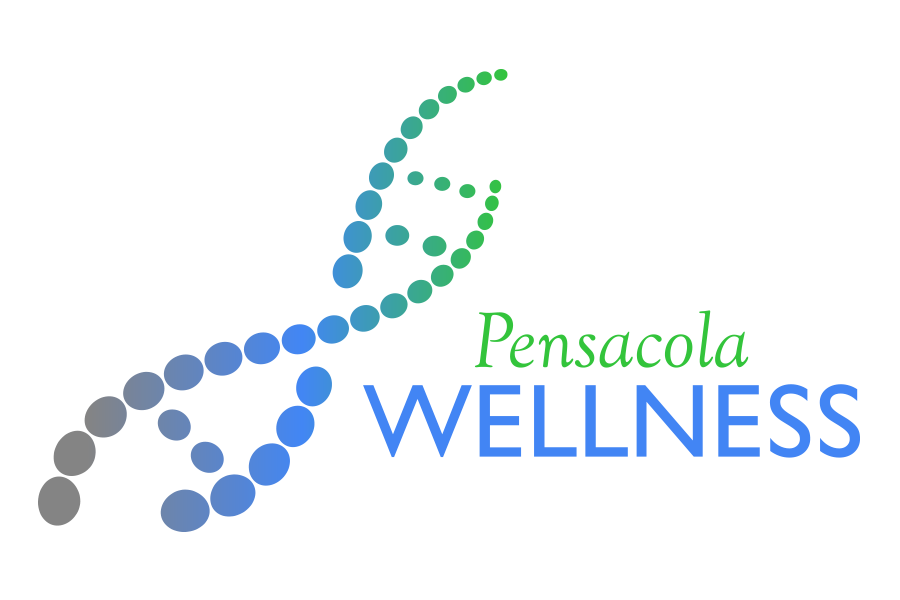
When most women under the age of 40 hear the word “hormones,” their first thought is menopause, mood swings and hot flashes. However, from the time we are born, our hormones begin dictating our appetite, sleep patterns, stress response, mood, libido and everything in between. This is why it is vitally important that everyone (of every age) has a basic grasp of how their hormones work to understand what exactly is going on in their bodies.
The term “hormone imbalance” gets thrown around a lot by health professionals. Trying to fully understand this somewhat generic term can be a little overwhelming. So, what does it actually mean? How do we know which hormones are balanced and which ones are not? What symptoms are we actually suppose to be looking out for?
Hormone fluctuations occur naturally during puberty, menopause and perimenopause. Additionally, hormone imbalance may also be caused by toxins, the external environment around us, an unbalanced lifestyle and unhealthy habits.
Cortisol and insulin are usually the first hormones to become unbalanced, typically due to stress and blood sugar. These hormone imbalances have an effect on our thyroid, ovarian and sleep hormones by disrupting how thyroid hormones, progesterone, testosterone and melatonin work in the body.
Here are some of the first signs of hormone imbalance that you can look out for:
1. Trouble falling asleep or sleeping at night
2. Having a hard time getting out of bed in the morning, even if you’ve had a full 7-9 hours of sleep
3. You need caffeine to get going in the morning and need it again mid-morning and/or mid-afternoon to keep you going
4. Noticeable emotional PMS symptoms – mood swings, angry outbursts and energy crashes
5. You’re “hangry” often
If you’re experiencing one or more of the symptoms above, then it is quite possible that your cortisol and/or insulin is not being regulate properly. So, what do you do?
1. What you eat is just as important as when and how you eat
In order to maintain your blood sugar, you should be eating every 3-4 hours. Do not wait until you are starving or feel like you’re going to faint or throw up.
Bonus Tip: When you’re stressed out, your gut cannot easily absorb the nutrients that you are consuming – no matter how many veggies you eat! So at each meal, be sure you sit down while you eat, eat slow, chew your food the recommended 20 to 30 times and think happy, positive thoughts while you’re eating.
2. Cut back on your alcohol and caffeine intake
Alcohol hits your bloodstream immediately which can easily spike your blood sugar levels. Additionally, it raises your estrogen levels creating a lot of extra work for your liver as it cannot effectively detox the additional estrogen. Estrogen excess can cause longer, heavier periods, breast pain, headaches and stronger PMS symptoms.
Caffeine can be the hardest for most people to give up. However, caffeine has been shown to increase serotonin levels in the limbic system, which is a primitive part of our brain that is involved in regulating the basic functions including hormone secretions, emotional responses and mood regulation. Additionally, caffeine has effects on the adrenal glands that sit atop your kidneys. The adrenal glands secrete epinephrine (adrenaline) and cortisol. Epinephrine increases heart rate, blood pressure and respiration rate while cortisol frees up stored glucose (which we need in high-stress situations). Studies have shown that drinking coffee and caffeine recreates stress conditions for the body.
We’re not saying you need to completely give up your morning coffee. However, if you’re drinking multiple cups of coffee or caffeine throughout the day because you’re having energy crashes (or if you’re having trouble falling asleep at night and getting up in the morning), maybe it’s time for you to cut back, just a little. You don’t have to quit cold turkey, but maybe start by easing into it with half decaf and half regular or replace just one cup a day with decaf.
3. Consult with a Hormone Expert
If you’re still noticing the signs and symptoms of hormone balance after altering your diet and cutting back on the alcohol and caffeine, it may be time to consult with a hormone expert.
Hormones affect our brain, heart, bones, muscles and reproductive organs. They are essential to regulate the activity of cells and tissues. Hormones work best when they are balanced, but fluctuations are a natural part of life. These fluctuations begin to increase as we age, sometimes becoming more noticeable as early as age 30. Regulating hormone imbalances is key to ensuring that your body stays healthy long in to old age. There are a few key signs that we can watch for, but scheduling a consultation with a hormone expert is a good step in addressing hormone imbalance. Pensacola Wellness Solutions specializes in accurately addressing hormone imbalance symptoms by creating custom tailored hormonal treatment plans specific to your needs. Learn more here!
The term “hormone imbalance” gets thrown around a lot by health professionals. Trying to fully understand this somewhat generic term can be a little overwhelming. So, what does it actually mean? How do we know which hormones are balanced and which ones are not? What symptoms are we actually suppose to be looking out for?
Hormone fluctuations occur naturally during puberty, menopause and perimenopause. Additionally, hormone imbalance may also be caused by toxins, the external environment around us, an unbalanced lifestyle and unhealthy habits.
Cortisol and insulin are usually the first hormones to become unbalanced, typically due to stress and blood sugar. These hormone imbalances have an effect on our thyroid, ovarian and sleep hormones by disrupting how thyroid hormones, progesterone, testosterone and melatonin work in the body.
Here are some of the first signs of hormone imbalance that you can look out for:
1. Trouble falling asleep or sleeping at night
2. Having a hard time getting out of bed in the morning, even if you’ve had a full 7-9 hours of sleep
3. You need caffeine to get going in the morning and need it again mid-morning and/or mid-afternoon to keep you going
4. Noticeable emotional PMS symptoms – mood swings, angry outbursts and energy crashes
5. You’re “hangry” often
If you’re experiencing one or more of the symptoms above, then it is quite possible that your cortisol and/or insulin is not being regulate properly. So, what do you do?
1. What you eat is just as important as when and how you eat
In order to maintain your blood sugar, you should be eating every 3-4 hours. Do not wait until you are starving or feel like you’re going to faint or throw up.
Bonus Tip: When you’re stressed out, your gut cannot easily absorb the nutrients that you are consuming – no matter how many veggies you eat! So at each meal, be sure you sit down while you eat, eat slow, chew your food the recommended 20 to 30 times and think happy, positive thoughts while you’re eating.
2. Cut back on your alcohol and caffeine intake
Alcohol hits your bloodstream immediately which can easily spike your blood sugar levels. Additionally, it raises your estrogen levels creating a lot of extra work for your liver as it cannot effectively detox the additional estrogen. Estrogen excess can cause longer, heavier periods, breast pain, headaches and stronger PMS symptoms.
Caffeine can be the hardest for most people to give up. However, caffeine has been shown to increase serotonin levels in the limbic system, which is a primitive part of our brain that is involved in regulating the basic functions including hormone secretions, emotional responses and mood regulation. Additionally, caffeine has effects on the adrenal glands that sit atop your kidneys. The adrenal glands secrete epinephrine (adrenaline) and cortisol. Epinephrine increases heart rate, blood pressure and respiration rate while cortisol frees up stored glucose (which we need in high-stress situations). Studies have shown that drinking coffee and caffeine recreates stress conditions for the body.
We’re not saying you need to completely give up your morning coffee. However, if you’re drinking multiple cups of coffee or caffeine throughout the day because you’re having energy crashes (or if you’re having trouble falling asleep at night and getting up in the morning), maybe it’s time for you to cut back, just a little. You don’t have to quit cold turkey, but maybe start by easing into it with half decaf and half regular or replace just one cup a day with decaf.
3. Consult with a Hormone Expert
If you’re still noticing the signs and symptoms of hormone balance after altering your diet and cutting back on the alcohol and caffeine, it may be time to consult with a hormone expert.
Hormones affect our brain, heart, bones, muscles and reproductive organs. They are essential to regulate the activity of cells and tissues. Hormones work best when they are balanced, but fluctuations are a natural part of life. These fluctuations begin to increase as we age, sometimes becoming more noticeable as early as age 30. Regulating hormone imbalances is key to ensuring that your body stays healthy long in to old age. There are a few key signs that we can watch for, but scheduling a consultation with a hormone expert is a good step in addressing hormone imbalance. Pensacola Wellness Solutions specializes in accurately addressing hormone imbalance symptoms by creating custom tailored hormonal treatment plans specific to your needs. Learn more here!

Leave a Comment